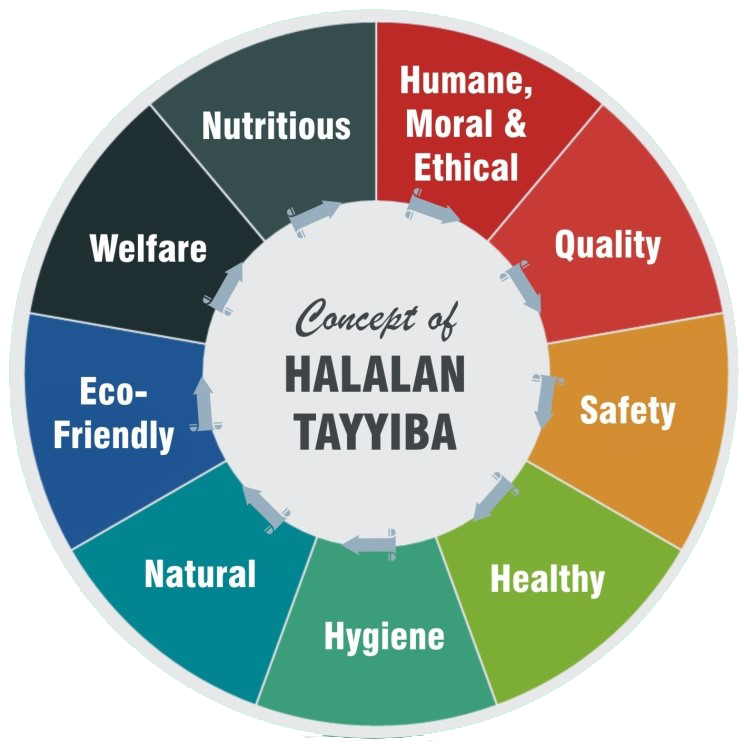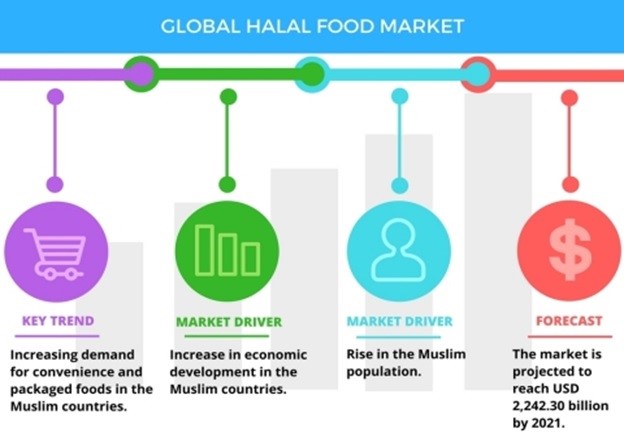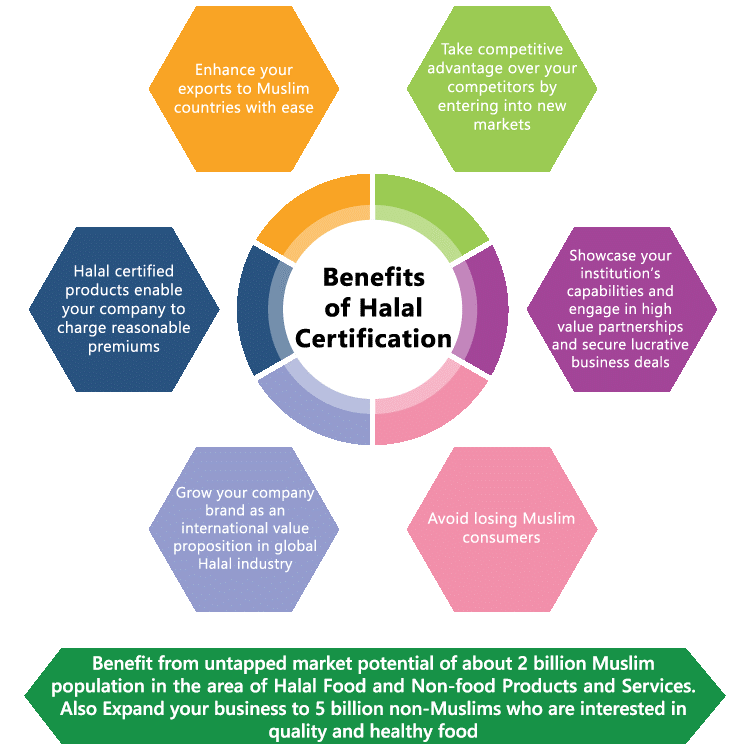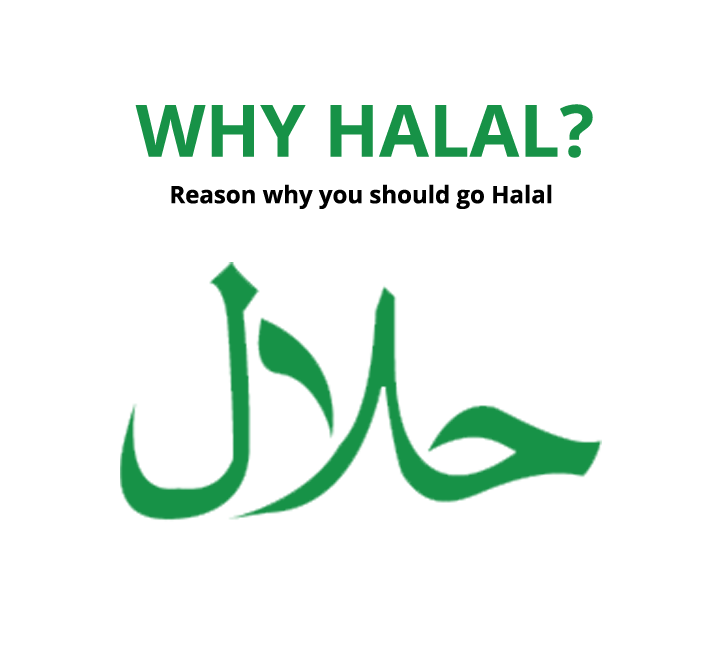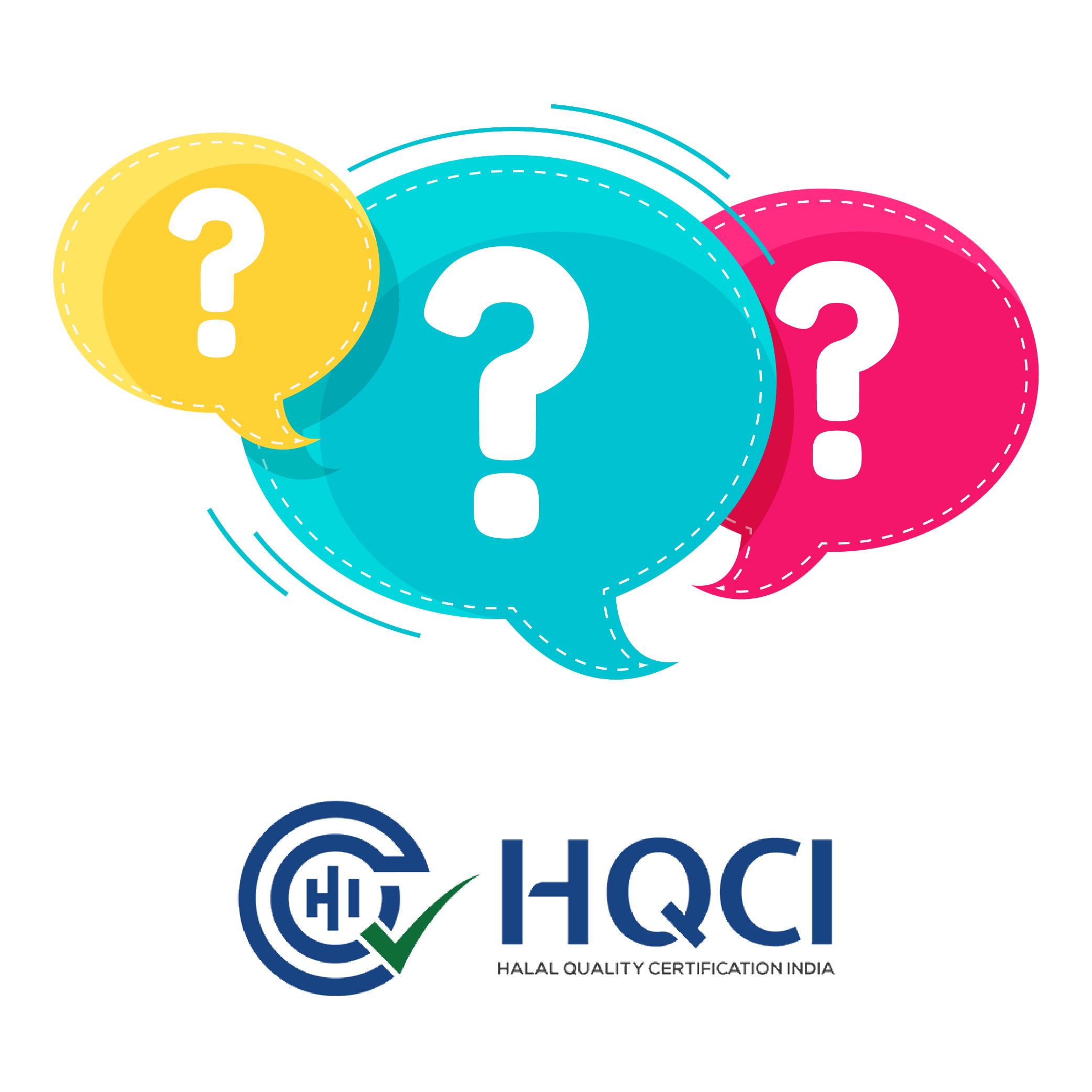What is Halal?
Halal is an Arabic word that means “permitted or lawful”. The opposite of Halal is Haram which means “impermissible or unlawful”. Halal and Haram are the universal terms that apply to all facets of life.
“Halal is a way of life…..”
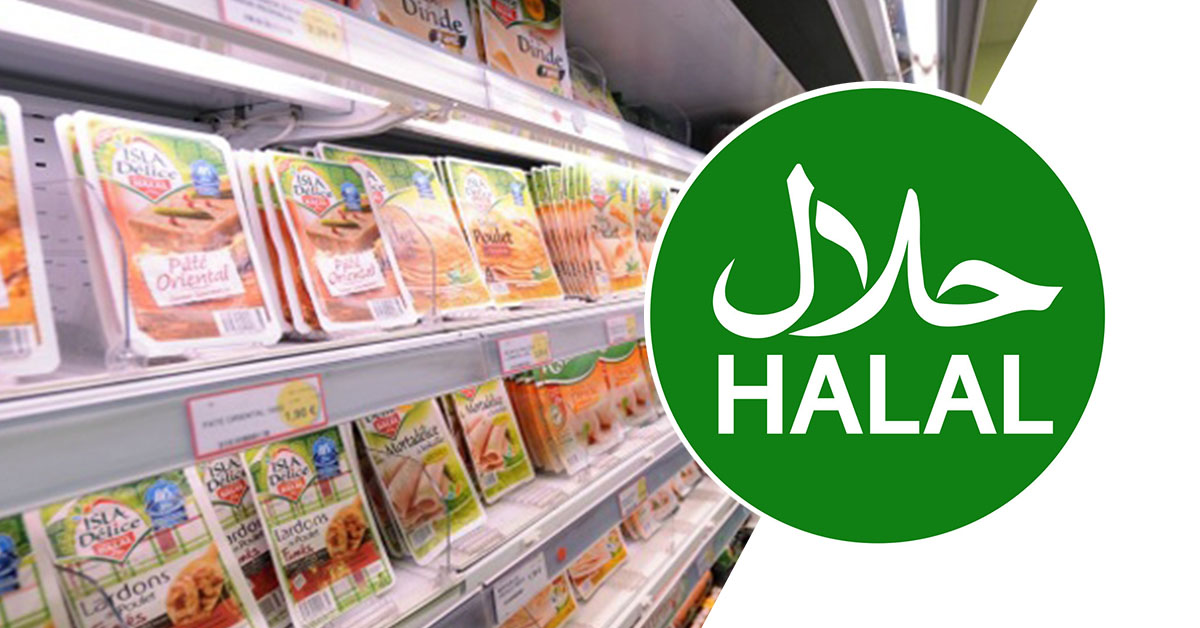
In reference to food, it is the Islamic dietary standard, as prescribed in the Sharia's (Islamic Law). In today’s modern technology world, the food we eat or the products we use may not be from permitted (Halal) source. Halal is applicable to all Food products, Meat products, Cosmetics, Personal care products, Pharmaceutical/Health care products and Food contact materials.
Traditionally, ‘Halal’ was seen to refer only to meat and poultry, specifically with reference to the method of slaughter. The concept of halal is expansive and has more science & ethics to it and can be applied to the entire mankind. More recently, Halal has grown and become a powerful market parameter that continues to evolve across different subsectors of the food supply chain and has affected related industries such as non-meat foods, animal feed, herbal medicines, pharmaceuticals, cosmetics, personal care, travel and hospitality, lifestyle markets such as fashion and media.
HALAL
A product is considered Halal if as a whole and in part is:
- Free of, and not containing any substance or ingredient, taken or extracted from a Haram animal or ingredient.
- Made processed, produced, manufactured and/or stored by using utensils, equipment and/or machinery that has been cleansed according to Islamic law.
- Must never have come into contact with, touch or be close to a Haram substance during preparation, making, production, manufacture processing and/or storage.
HARAM
A product is considered Haram if it comes into contact with or as a whole or in part contains:
- Animals not slaughtered in a Halal manner.
- Pigs, dogs, donkeys or carnivores.
- Dead animal due to strangulation, a blow to the head (as in clubbing), a headlong fall, natural causes (carrion), being gored or attacked by another animal.
- Animals having protruding canine teeth such as monkeys, cats, and lions.
- Amphibious animals such as frogs and crocodiles.
- Undesirable insects such as worms, flies and cockroaches.
- Birds of prey with talons such as owls and eagles.
- Alcohol, harmful substances, poisonous and intoxicating plants or drinks. Blood and its by-products
Why Halal (Permitted)?
- To serve the national and international Muslim communities in meeting their religious compliance
- Halal products are typically known as being pork free, alcohol free, and for the specific method of slaughter.
- Halal is for both, Muslim and Non-Muslims alike as it stands as a Quality assurance for all.
- Hygienically processed and Safe for consumption & Use.
- Quality standard of production & ingredients / materials
- Halal: “HEALTHY, WHOLESOME & HYGIENE
